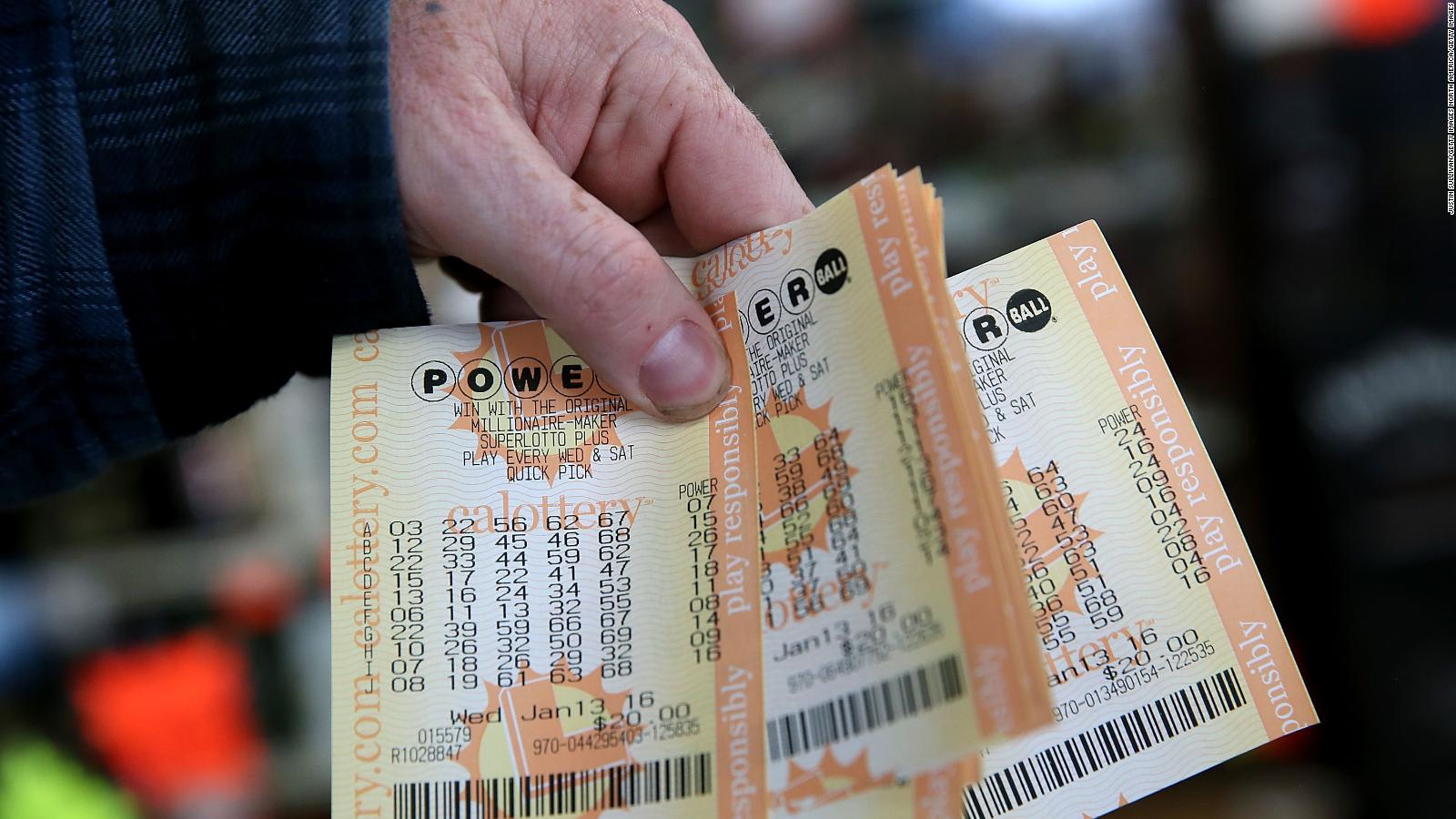Powerball jackpot increased to $2.04 billion 0:22
(CNN) --
The Powerball lottery jackpot surpassed $2 billion, becoming the largest lottery jackpot in history.
But in 1987, when Lotto America, the precursor to Powerball, was introduced, organizers banned prizes of more than $80 million.
Powerball Winning Numbers Announced: Jackpot Exceeds $2 Billion
"There was concern about what could be done with that money, like buy a small country or something," Ed Stanek, director of Lotto America, said at the time.
Lottery frenzy had taken over the 1980s as more states introduced lotteries to raise revenue for education and social programs, but prizes from some smaller states couldn't keep up with more populous states.
The Fed's relationship with the new Powerball record 1:14
Oregon, for example, was losing players to Washington and California, which offered prizes of up to $20 million.
advertising
So officials from Rhode Island, Oregon, Missouri, Iowa, Kansas, West Virginia, and Washington DC came together to create Lotto America as a way to pool money and offer jackpots.
They also hoped that the bigger jackpots would attract first-time players.
"Our motivation is to offer Oregonians the ability to play in the drawings that could be played in one of the big states," said then-Oregon Lottery Director James Davey.
The interstate lottery was modeled after those in Canada and the US Virgin Islands.
Officials expected Lotto America to offer average weekly prizes of between $3 million and $5 million, with the possibility of bigger prizes after a year or two.
Sweepstakes expenses and profits from ticket sales were divided among the jurisdictions in proportion to each state's or district's ticket sales.
Learn the secrets of the Powerball draw 1:20
Lotto America spokesman Jack Ratigan said at the time that it was "a totally new game."
How was Powerball born?
Initially, Lotto America offered players the chance to choose seven numbers from a field of 40 for a minimum bet of $1.
Players whose numbers matched those selected in a weekly drawing won a prize determined by the total number of tickets sold.
The odds of winning the jackpot were 1 in 19 million, compared to 1 in 8 million odds for most state lottery games, according to officials.
A bankrupt Iowa farmer was the first Lotto America winner, in 1988. He said he would use the $3 million prize to save his family's farm.
What you need to know before buying your Powerball ticket 2:07
A year later, Lotto America went on to select six numbers from a field of 54. That year, it offered a prize of US$20 million, and in 1991, the prize reached US$50 million.
By 1992, Lotto America had grown to include fifteen states.
The game was rebranded as Powerball in an effort to give players a better chance of winning smaller prizes.
"What we're hearing is that people like the big prize, but want a better chance of winning smaller prizes," said Oregon Lottery Director James Davey.
Powerball soon offered a $100 million jackpot.
However, during the 1990s, players began to experience "prize fatigue" and Powerball required ever-increasing jackpots to maintain interest, said Jonathan D. Cohen, author of "For a Dollar and a Dream: State Lotteries in Modern America".
Meanwhile, instant scratch-off games grew in popularity and became the main way to play the lottery.
Do you feel lucky?
Look at the historical sum of the Powerball 0:45
In 2010, in an effort to win more players and increase the size of prizes, Powerball and Mega Millions, the two largest multi-state lotteries, agreed to allow retailers to cross-sell both games for the first time.
A year later, the price of a Powerball ticket increased from $1 to $2, and the initial prizes doubled.
The game is now available in 45 states, Washington DC, Puerto Rico, and the US Virgin Islands.
These changes have made Powerball prizes go up a lot.
The five biggest Powerball jackpots have all occurred in the last six years.
The odds of winning the jackpot are now 1 in 292 million.
Lotteries are regressive, meaning that lower income groups spend more of their budget on lottery games than higher income groups.
Powerball is often the least regressive lottery game, Cohen said, because wealthier people tend to buy tickets when jackpots skyrocket.
But for most of the year, "there are more disproportionately poorer people putting money into smaller prizes."
Powerball

